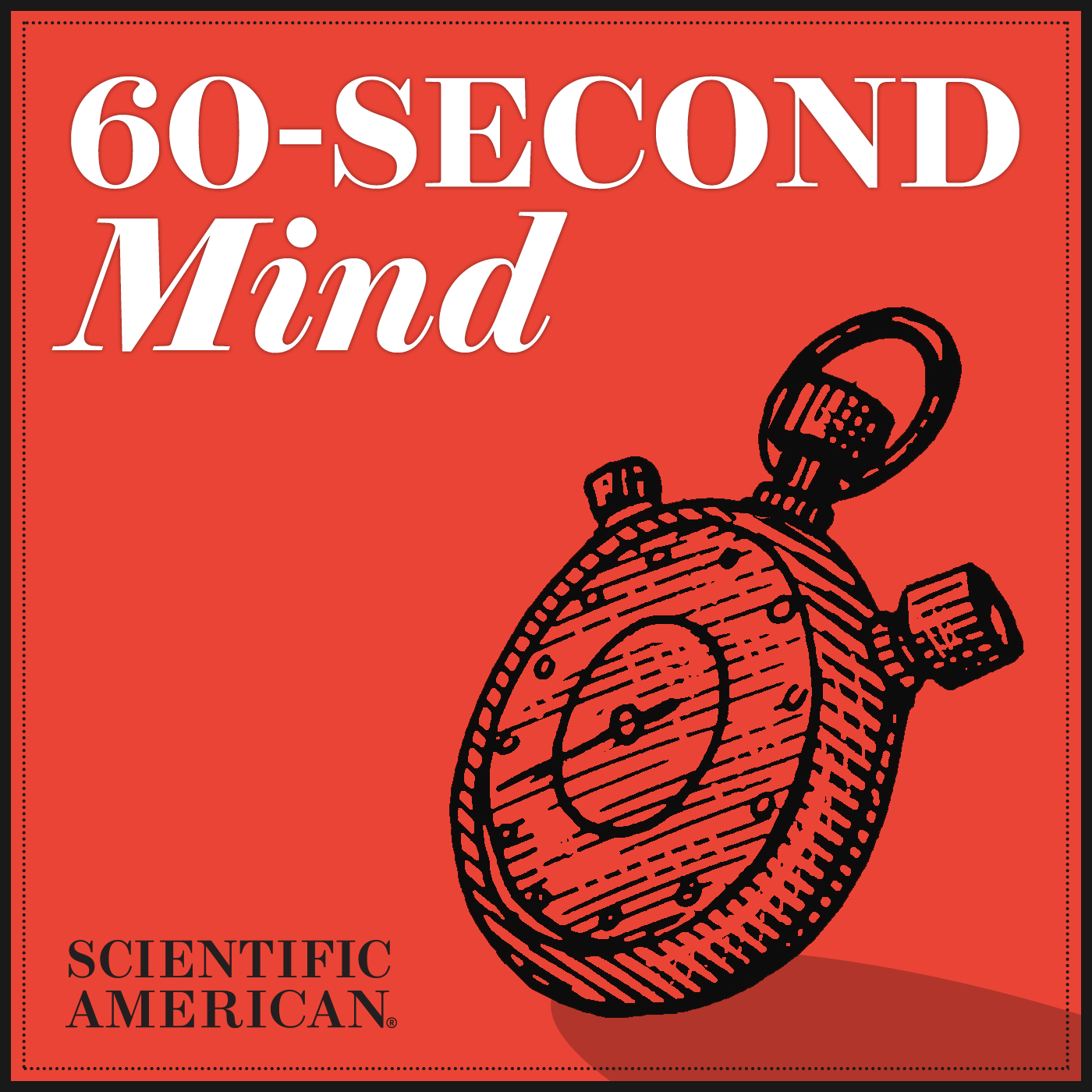338 episodes


Choosing a user name starting with a letter appearing earlier in the alphabet is just one scientifically vetted way to increase the odds of turning an online encounter into a first date. Christopher Intagliata reports


High-calorie and exceedingly pleasurable foods appear to change rat brain rewards circuitry, causing the rodents to continue to seek such fare. Erika Beras reports


Parkinson’s patients derived more benefits from a salt solution they were told was an expensive drug than from the same solution when it was described as being cheap medication. Karen Hopkin reports


Of studies presented at conferences, those that found a cognitive benefit to bilingualism were almost twice as likely to get published in journals as were studies finding no benefit. Karen Hopkin reports


Implicit bias against another race lessened after volunteers experienced themselves via virtual reality as a member of that race. Karen Hopkin reports


Levels of a protein fragment in the blood paralleled how long head injuries benched hockey players. Ingrid Wickelgren reports


If you're in an up mood, you may walk more energetically. But a study finds that purposefully walking more energetically may improve your mood. Christie Nicholson reports


Subjects who kept pace with a walking colleague estimated a potential enemy to be smaller and lighter than did other walkers who were not marching. Karen Hopkin reports


Young adults who’d had highly controlling parents were less able to stress their own viewpoints to a friend or partner in confident and productive ways. Daisy Yuhas reports


Absence from work due to illness increased dramatically for those who slept less than six hours or more than nine hours per night. Christie Nicholson reports


The direction of your gaze when looking at someone offers an unconscious, automatic giveaway of whether your initial reaction is romance or sex. Christie Nicholson reports


People who had to strike up conversations on a subway later reported feeling happier than those who didn’t. Christie Nicholson reports.


Survey subjects rated life experiences as making them happier and as a better use of money than buying objects. But they actually spent their cash on material goods, whose value is more easily quantifiable. Erika Beras reports


Children who experience neglect, abuse and/or poverty can have smaller amygdalas and hippocampuses, brain regions involved in emotion and memory, compared with kids raised in nurturing environments. Christie Nicholson reports


Monkeys trained to play fixed video games made moves indicating that they expected certain patterns to occur. Erika Beras reports


Researchers studying anesthetized rats discovered a handful of activity patterns that may mark the path to consciousness after anesthesia. Karen Hopkin reports


Our ability to pinpoint pain varies across the body, and in a specific pattern. Christie Nicholson reports


Researchers could tell what sounds blindfolded volunters were hearing by analyzing activity in their visual cortexes. Christie Nicholson reports


Thirty-three families allowed themselves to be recorded for up to six nights. Parents who said they supported corporal punishment did it often and with little provocation. Christie Nicholson reports


In a study covering five different countries, subjects reported feeling best on the days when they practiced what are considered extroverted actions. Christie Nicholson reports


Food’s texture in your mouth—also called “mouthfeel” or “oral haptics”—influences estimates of calorie counts. And people might eat more crunchy stuff assuming (often incorrectly) it has fewer calories than softer fare. Christie Nicholson reports


Teenage drivers who have a high sensitivity to stress actually have lower rates of car accidents than their more mellow friends. Christie Nicholson reports


What's being called "nomophobia," the anxiety of not having your mobile phone with you, may be a real condition among teens, at least according to two recent studies out of South Korea, the world’s most connected nation. Larry Greenemeier reports


Girls who played with dolls were then asked about future careers. Those who played with Barbie more likely to envision traditional pink-collar jobs than were girls who played with Mrs. Potato Head. Erika Beras reports


Children who heard descriptions of animals behaving like humans were less likely to attribute to a real animal a newly learned biological fact than were kids who heard realistic information. Christie Nicholson reports


Moms were better able to sway a child's perception of risk when they explained the reasons an activity was dangerous and its possible consequences rather than just saying no. Christie Nicholson reports


Adults who had been members of gangs in their adolescence had poorer outcomes on a variety of measures, including physical and mental health, than those who'd never been in a gang. Christie Nicholson reports


Babies learning speech figure out what an object is by listening to others talk about what that object does. Christie Nicholson reports


Recent and easily retrievable information can overwrite the details of memories, thus altering them in your mind. Christie Nicholson reports


People who played instruments as children responded a bit quicker to complex speech sounds as adults, even if they had not played an instrument in many years. Erika Beras reports
